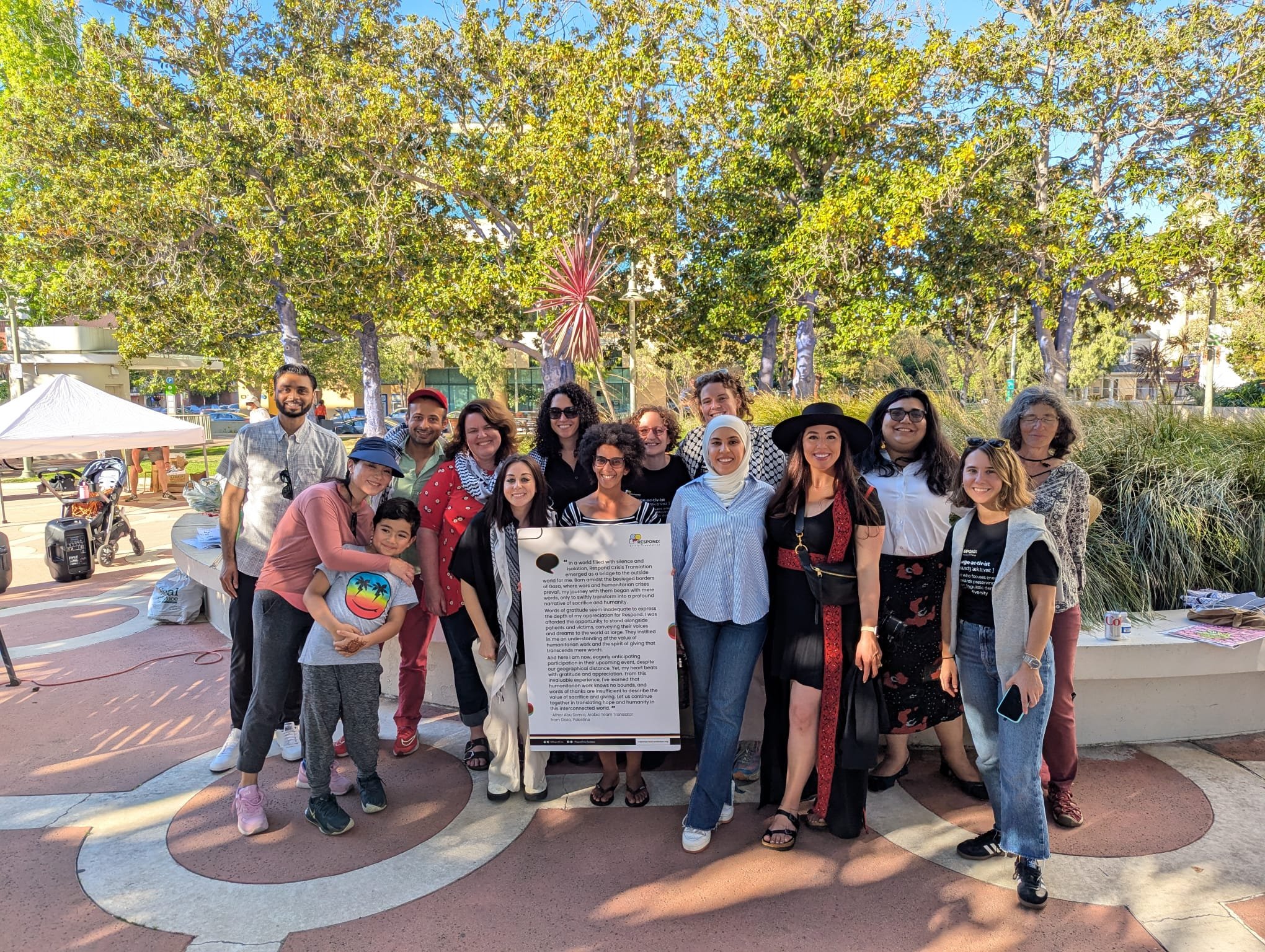Dr. Timnit Gebru: The consequences of mistranslation for Eritrean and Palestinian asylum seekers
As the genocide in Gaza escalates, we at Respond Crisis Translation gathered to commemorate the anniversary of the ongoing Nakba and honor Palestinian translators and interpreters.
Dr. Timnit Gebru, an expert on AI ethics and algorithmic bias, founder of the Distributed AI Research Institute, and co-founder of Black in AI, joined us to speak about the importance of language justice and language access in contexts of genocide and violence – including in another ongoing genocide in Tigray.
This week, a new report published evidence that Ethiopian forces committed genocidal acts during the Tigray war between 2020 and 2022. Despite the formal end of the war, the abuses are ongoing. Although millions of people have been impacted, this genocide has been met with systemic erasure and given almost no international attention or media coverage.
It’s in these contexts of imperialism and genocide that critical analysis and language rights interventions – by experts like Dr. Gebru and the work of language practitioners such as the translators on Respond Crisis Translation’s Tigrinyan Team, which has been led by Diana Ghebrezadik since 2021 – are all the more urgent.
Dr. Gebru touched on this ongoing devastation, and the relationships among language rights violations and the experiences of asylum seekers and refugees from Tigray and Gaza. Read the full transcript of Dr. Gebru’s speech below.
I want to take a very short time to talk about why the work at Respond Crisis Translation is so important to me personally and to our people. When I say our people – my name is Timnit, and it means “wish” in Tigrinya. Has anybody heard of the word Tigrinya? Tigrinya is a language spoken in Eritrea – I am of Eritrean descent – and the northern region of Ethiopia, Tigray. Have you all heard of Tigray? More and more people are probably hearing about Tigray now because there was a genocide of epic proportions, an ongoing genocide, that killed one million people, more than 300,000 women being victims of rape as a weapon of war. So, I’m of Eritrean descent, and we have the displeasure of having a genocidal government that commits genocide of its own people and the neighboring regions of Tigray.
I was also an asylee, I received political asylum in the U.S., but I was fluent in English when I came. I had that privilege, so I didn’t need translators or anything like that. What happens to other Eritreans – we also happen to have one of the largest emigration rates in the world. In 2016, Eritreans only came second to Syrians in terms of the number of applications in Europe, for instance, and all of the things you hear about, human trafficking, drowning in the Mediterranean, etc. a lot of our people go through this.
What happens is that when these asylum seekers come – so we have a long arm. There is a long arm of the Eritrean government, and one of the ways this long arm is weaponized is language. So these asylum seekers come, and this long arm has lots of different spies, and some of them are in the form of translators when you’re speaking asylum. So what happens is when you’re telling your story, this harrowing story, about what you’re going through, etc., these translators will say, “We know your parents are back home.” You don’t want to tell that story, right? So they’ll start … messing up their asylum claims.
Imagine how important it is that we have organizations like Respond Crisis Translation who have to vet all of these translators, support all of these translators, pay them, right, because we’re not into free labor and exploitation. This is very personal for me because we have a lot of refugees in our community.
The second thing I wanted to say is just like Ariel I had the pleasure of being fired by Google in 2020, or the displeasure of being fired by Google, and at the center – there was a lot of issues, I was making a lot of noise – but at the center of this dispute was this paper I had written about what I call large language models. This is the underlying technology in a lot of currently "AI systems” like Chat-GPT or whatever and this is also the underlying system used in a lot of automated machine translation tools. So sometimes they tell us you can replace humans with these things, but obviously you can’t.
One of the examples we gave in our paper was a Palestinian man woke up and wrote “Good morning,” and it was translated on Facebook to “Attack them.” So you take “Good morning” and your automated machine translation tool translated to “Attack them.” I believe this was in 2017. He was arrested but thankfully later released, but think about the kind of consequences that you could have with this kind of mistranslation.
Let’s support them, let’s support Respond Crisis Translation. Thank you so much, and obviously, free Palestine, always. Thank you.
Dr. Timnit Gebru



